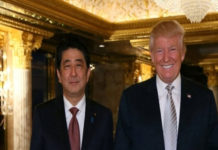
Israel’s war against Hamas has shaken the country’s economy, which is worth 488 billion dollars; it destroyed thousands of Israeli businesses and threw entire sectors into crisis. Many businesses have started to operate in war mode and some staff in other sectors are losing their jobs. The delivery and security industry is growing.
The shekel exchange rate must be maintained, the Central Bank of Israel said. The Central Bank of Israel sold $8.2 billion for this in October.
Foreign reserves fell to their lowest level since 2023 a year after currency interventions by the Bank of Israel in October to blunt the weakening shekel. The current level of gold and foreign exchange reserves is equal to 36.8% of the country’s gross domestic product.
With the outbreak of the war, the head of the Bank of Israel, Amir Yaron, announced a plan to sell currency worth up to $30 billion.
Not only the value of the local currency is being damaged, but also trade relations with Arab countries. Trade between Israel and Turkey has halved since the start of the Hamas Al Asqa Floods operation.
In a press conference during an official visit to Kuwait, Turkish Trade Minister Omer Polat said: “Since October 7, we have noticed that mutual trade (between Turkey and Israel) has decreased by more than 50% compared to last year.”
Previously, Turkey announced the suspension of energy cooperation with Israel. Experts believe that Ankara’s decision to suspend gas transportation agreements will cause significant damage to Israel, since the Turkish option is the most suitable and least expensive, while noting that Turkey’s position – even if it entails economic losses – nevertheless expresses solidarity with Palestine.
Furthermore, as explained by the senior Israeli military leaders, the war will not take place in a short time and the long-term risk is an increase in internal tension.
Israel’s war against Hamas could set the Palestinian economy in Gaza and the West Bank back by decades, says a new analysis from the United Nations Development Programme.
Antonio Albanese e Graziella Giangiulio
















